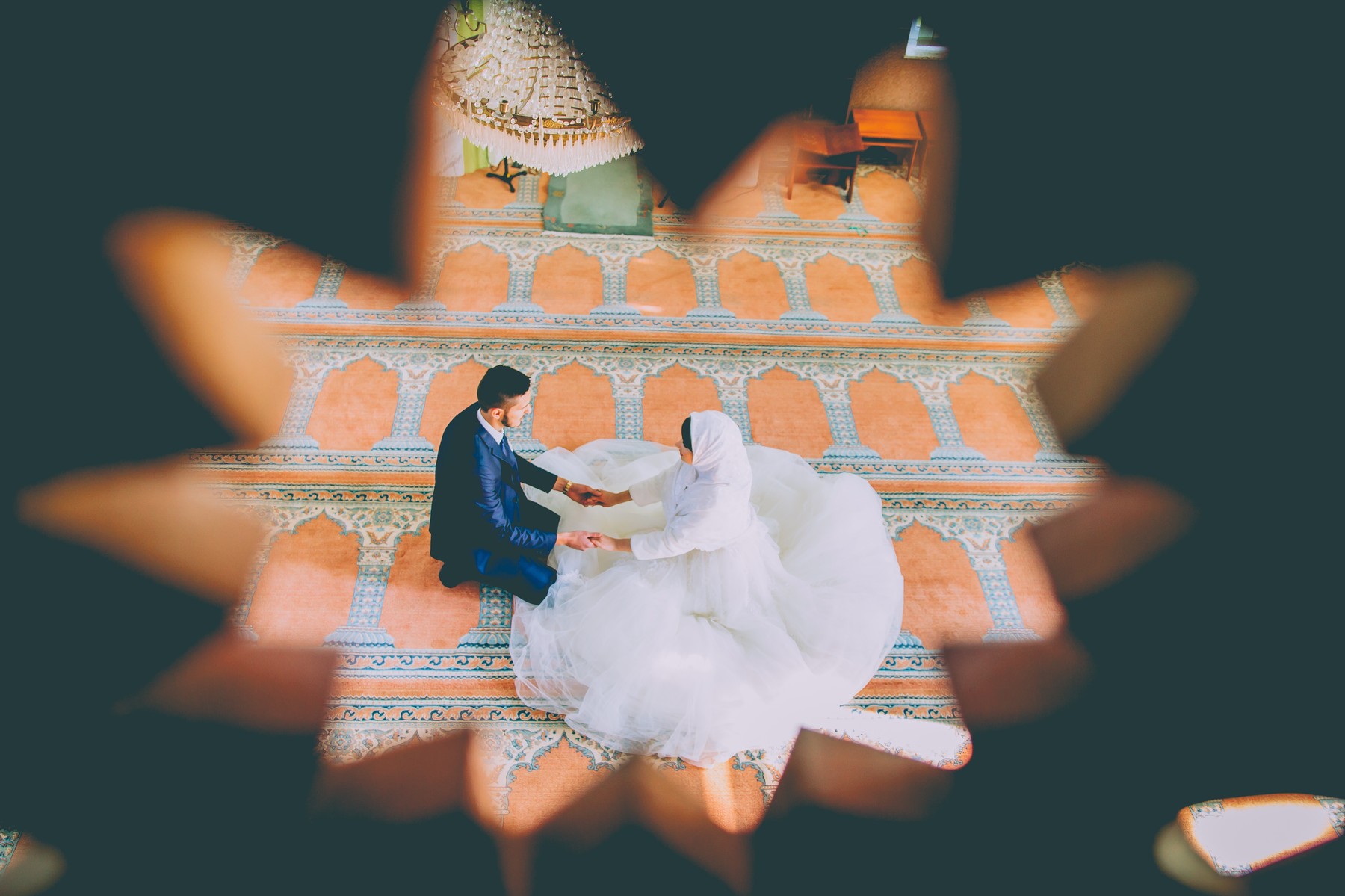
Wedding season has come around once again, and the festivities in the Muslim community that celebrate a new couple coming together are certainly a sight to behold! Muslim weddings exhibit great cultural diversity but regardless of whether it is Arab, Indian, Persian, African, Asian, etc you can be sure that there will be lots of fancy clothes, delicious foods, and big families getting together!
The wedding is a major life event and the formation of a new family. Islam teaches that it is in fact a symbol of Divine Mercy and must be founded upon love and compassion.
The Qur'an states, "And among His Signs is that He created for you mates from among yourselves, that ye may dwell in tranquillity with them, and He has put love and compassion between your hearts: verily in that are Signs for those who reflect." (Qur'an 30:21).
This verse is frequently recited at Muslim wedding ceremonies to remind us that marriage in Islam is based on true love and compassion, which in turn yields tranquility in one's life.
Prior to the wedding, families will often meet to get to know each other. Islam stresses that the consent of both the man and the woman is an essential condition for the validity of the marital contract (Qur'an 2:232).
Also, prior to the marriage the groom presents the bride a financial gift referred to as Mahr. The contract itself consists simply of the proposal and acceptance, making the couple officially bride and groom. Often the ceremony in which this takes place will also a speech on the spiritual significance of marriage. Once the contract is done the actual 'nikaah' or marriage has taken place.
Sometimes the ceremony will take place at a mosque after which there may be a large party and dinner at a banquet hall, for many Muslim weddings. The feast done to celebrate the wedding is traditionally termed the waleemah. Sometimes the terms are used differently depending on the culture. In Indo-pakistani culture it is common for the wedding to actually include multiple events - the first banquet is done by the bride's family and considered synonymous with the 'nikaah', the second banquet is done by the groom's family and considered the waleemah. There may be several smaller parties held by other family members and friends as well. Muslims love to party!
Weddings will often include beautiful poetry, emotional speeches, singing, and of course, stand-up comedy by family, friends and community leaders. Slide-shows with embarrassing childhood photos have long been a popular source of amusement, and tech-wavy youth will often throw in some videos with flashy special effects.
Many Arab Muslim weddings will feature a lot of dancing after the dinner, the dabke being a staple with all of its variations. These weddings are more commonly gender segregated, while those events consisting simply of speeches and dinner may variously be segregated or not. While this varies culturally, it goes back to Islam's commitment to modesty in gender interactions. Of course, the Prophet Muhammad (peace be upon him) encouraged having entertainment at weddings once commenting,
"This is the tribe of the Ansar who cherish singing. It would be better that you send along a singer with the bride who would sing!" (Reported in Sunan Ibn Majah, and Sahih Ibn Hibban).
Traditional Muslim Wedding Dance - Dabke
A Muslim wedding celebration usually continues until the late evening . The bride and groom will then rejoin and leave for their honeymoon. The wedding is also an occasion for the two entire extended families to meet and come together as a single family. It is a time of great happiness and joy.
Oakville Mosques


